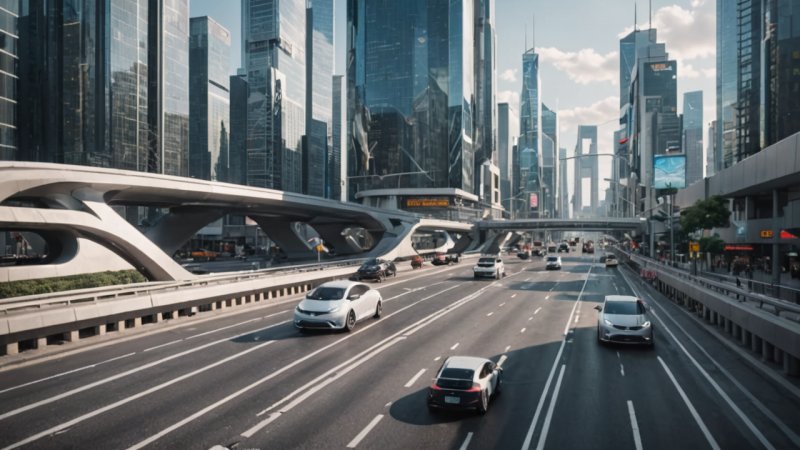In the ever-evolving landscape of automotive technology, self-driving cars have emerged as a focal point of innovation and speculation. To delve into this topic, we conducted a fictional interview with Dr. Henry Maxwell, a renowned expert in autonomous vehicle technology and a professor of Automotive Engineering at the Institute of Future Mobility. With over 20 years of experience in the field, Dr. Maxwell provides valuable insights into the future of self-driving cars, the challenges they face, and how they will reshape our daily lives.
What do you see as the most significant advancements in self-driving technology in the next decade?
Dr. Maxwell: The next decade is poised to bring remarkable advancements in self-driving technology. We can expect improvements in artificial intelligence algorithms, enabling vehicles to interpret and respond to complex environments more adeptly. Additionally, enhanced sensor technology will allow for better perception of surroundings, including improved radar and LIDAR systems. These advancements will contribute to safer and more reliable autonomous vehicles.
What are some of the key challenges that the industry must overcome?
Dr. Maxwell: There are several challenges, both technical and societal, that the industry must address. From a technical standpoint, ensuring the safety and reliability of autonomous systems is paramount. This includes rigorous testing and validation in real-world scenarios. On the societal front, there are concerns regarding regulatory frameworks, public acceptance, and the impact on jobs in the driving sector. We need to engage in meaningful discussions about these issues to facilitate smoother adoption.
How do you envision the interaction between self-driving cars and traditional vehicles?
Dr. Maxwell: The transition to self-driving technology will not happen overnight. For the foreseeable future, we will see a mix of traditional and autonomous vehicles sharing the roads. It will be crucial for these vehicles to communicate effectively with each other to prevent accidents and traffic congestion. Technologies like Vehicle-to-Vehicle (V2V) communication will play a vital role in this integration, ensuring a harmonious coexistence.
What implications do you foresee for urban planning and infrastructure?
Dr. Maxwell: The rise of self-driving cars will have profound implications for urban planning and infrastructure. With fewer parking spaces needed, we can repurpose those areas for green spaces or community facilities. Additionally, traffic patterns may shift dramatically, leading to restructured roadways and optimized traffic signals to accommodate autonomous vehicles. Planners will need to consider these changes to create smart cities that leverage technology for better living.
How will self-driving cars impact the average consumer's daily life?
Dr. Maxwell: For the average consumer, self-driving cars will offer unprecedented convenience and freedom. Imagine being able to work, relax, or even sleep during your commute. Moreover, this technology can enhance mobility for those unable to drive, such as the elderly or disabled, providing them with greater independence. As the technology matures, we will likely see a shift in how we view transportation, moving from ownership to mobility as a service.
What role do you think legislation will play in the future of self-driving cars?
Dr. Maxwell: Legislation will be critical in shaping the future of self-driving cars. Policymakers need to establish clear guidelines that ensure safety while fostering innovation. This includes regulations around testing, liability in accidents involving autonomous vehicles, and data privacy concerning the information collected by these cars. Collaboration between the automotive industry, tech companies, and government agencies will be essential to create a robust legal framework.
What advice would you give to individuals interested in pursuing a career in automotive technology?
Dr. Maxwell: My advice would be to stay curious and adaptable. The field of automotive technology is rapidly evolving, and those who can embrace change and continue learning will thrive. Specializing in areas like artificial intelligence, machine learning, or electrical engineering will provide a solid foundation. Furthermore, seek internships and hands-on experiences to gain practical knowledge and build a network within the industry.
In conclusion, the future of self-driving cars holds immense potential, but it is accompanied by significant challenges that must be navigated. As Dr. Maxwell emphasizes, advancements in technology, regulatory frameworks, and urban planning will play crucial roles in shaping how we interact with autonomous vehicles in our daily lives. The key to a successful transition lies in collaboration among stakeholders, ensuring that innovation leads to a safer, more efficient future for all.






